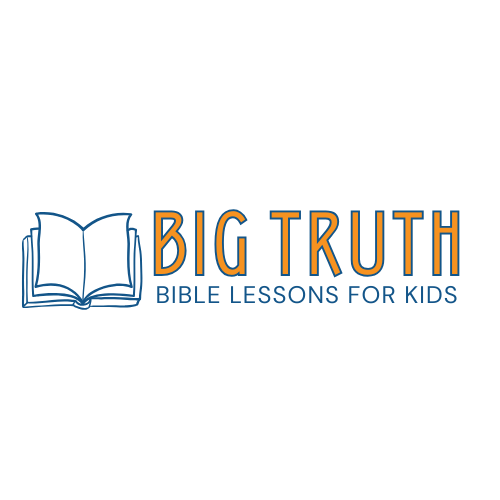As a children’s ministry leader, I get a lot of questions from parents—and I welcome them. Questions about teaching difficult passages, unpacking big theological truths, and helping children navigate today’s world are all evidence of a deep desire to shepherd kids well. But there’s one question I especially love—one that always sparks great conversations:
“What children’s Bible do you recommend?”
And every time I answer, I see the surprise on their faces.
My answer? None. I don’t recommend a children’s Bible.
(Wait! Before you panic—hear me out.)
It’s not that I’m against storybook Bibles or children’s Bible resources. There are many that I deeply appreciate and often use. I’m grateful that so many publishers are creating gospel-centered, theologically rich content for kids—even for toddlers! These tools can help introduce key truths at an early age and begin laying a solid foundation. [You can see my 5 favorites... the ones I use at home and church here]
But when a parent asks me what Bible they should give their child, I always point them to a full-text Bible.
Here’s why:
Romans 10:17 says, “Faith comes from hearing, and hearing through the word of Christ.”
Kids—yes, even the youngest ones—need to hear, read, and grow up under the actual Word of God. Not just stories about it, but the real, living Word itself.
When kids start to carry their own Bibles, flip through the pages, mark up verses, and grow familiar with Scripture’s rhythm and flow, something powerful happens. They begin to understand that the Bible isn’t just a book of stories—it’s God’s very words, written for all of His people - including children.
At our church, one way we encourage this is by giving each of our 5-year-olds a Bible bag as they transition from preschool to elementary classes. It’s a simple canvas tote with our ministry logo and a letter inside encouraging parents to help their child pick out a full-text Bible—usually a basic, inexpensive paperback version that’s easy to carry and not too precious to underline or use often. The excitement is contagious—kids walk proudly with their bags, and many begin bringing their Bibles every single week.
We Want Kids in the Word
One of the guiding values in our ministry is that God’s Word is central.
We want to raise up kids who not only hear God’s Word but learn to read it, study it, memorize it, and love it.
Psalm 119:9 asks, “How can a young man keep his way pure? By guarding it according to Your Word.”
But kids can’t live by the Word if they don’t know it. And they won’t know it unless they’re immersed in it—at church, at home, and everywhere in between.
Charles Spurgeon once said of John Bunyan, “Prick him anywhere and you will find that his blood is Bibline. The very essence of the Bible flows from him.” That’s the kind of disciple I want to help raise—a child whose heart is so full of Scripture that it overflows into every part of life.
What Do We Want Kids to Know About the Bible?
As we teach God’s Word, here are some truths we want every child to grasp:
- God reveals Himself in His Word (Hebrews 1:2).
- The Bible teaches that Jesus is the only way to have life (John 20:31; John 14:6).
- Every word of the Bible is God-breathed and useful for our lives (2 Timothy 3:16).
- God’s Word is always true (Psalm 119:160).
- And most importantly, the Bible reveals our sin and shows us our need for a Savior—Jesus, who died and rose again for us (Romans 3:10–12, 23; Romans 6:23; Romans 5:8).
So Yes… I Do Recommend a Bible for Kids—
But I recommend the Bible—in its fullness, its richness, and its transforming power.
Encourage kids to carry it, open it, highlight it, study it, and love it.
Because God’s Word is not just for adults. It’s for every child who longs to know their Savior.
Questions to Help You Evaluate How Word-Focused Your Ministry Is:
- Do you as a teacher teach with an open Bible?
- Do all of the kids in your program have access to a Bible each week (their own or one you provide)?
- Assuming children bring their Bibles, do you regularly have them using their Bibles?
- Are children given opportunities to look up and read supplemental texts?
- Are children regularly asked to dig into a text to find its meaning for themselves?
- Are questions asked based on the text?
- Are non-readers given opportunities to look up verses (with teacher help) and allowed to handle the Word of God?
To help you in your ministry, consider printing this evaluation form and walking through it with your team to determine how Word-focused your ministry is.

